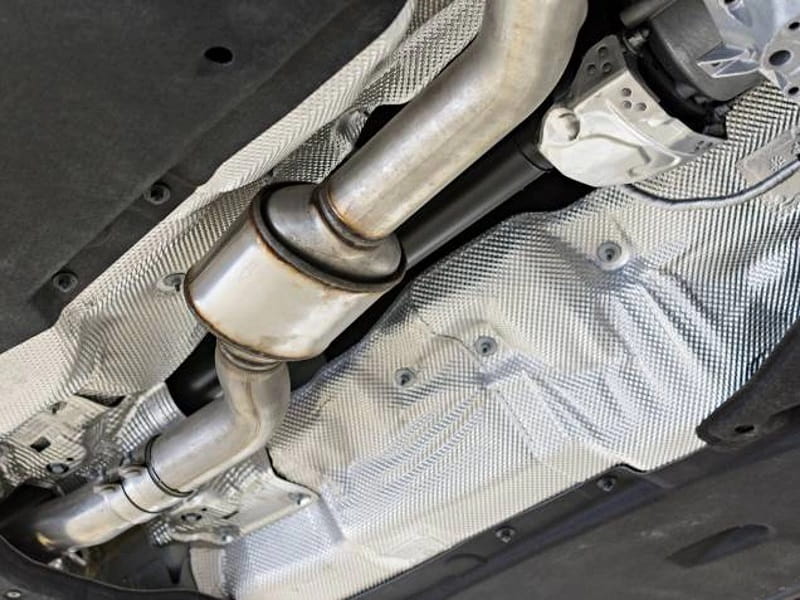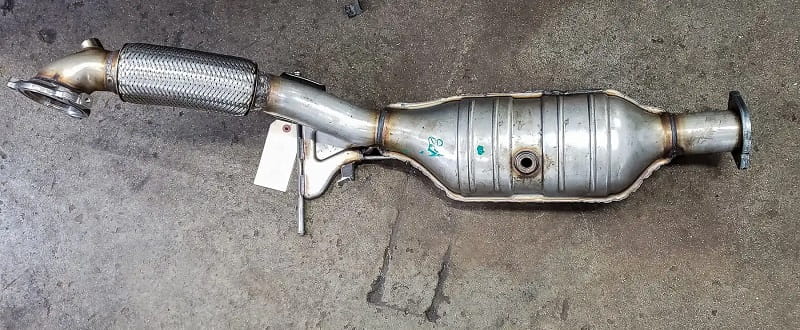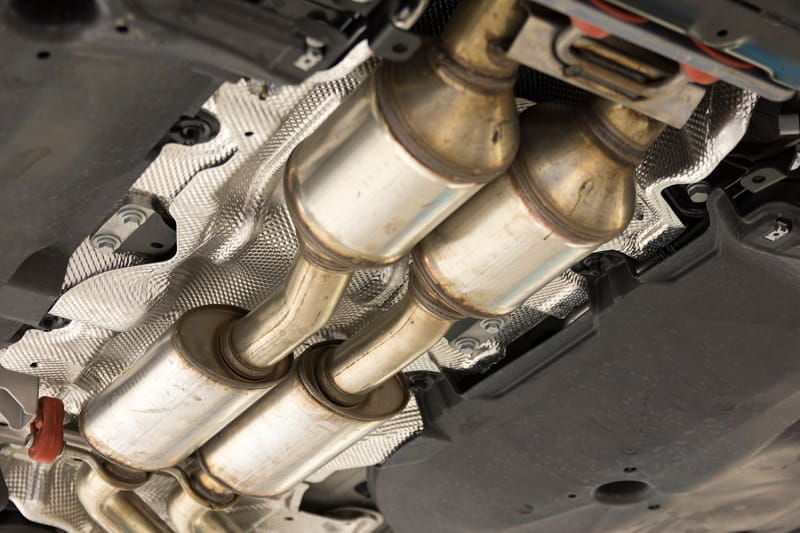This post contains affiliate links. This means I will make a commission at no extra cost to you should you click through and make a purchase [ “As an Amazon Associate, I earn from qualifying purchases.” ]. Read the full disclosure here.
Catalytic Converter Price in the UK: What You Need to Know GuideMechanic.Com Catalytic converters play a vital role in reducing harmful emissions from vehicles, making them an essential component of modern automotive technology.
In the UK, awareness around environmental impact has grown significantly, and with stricter emissions regulations, the demand for functional catalytic converters has increased.
Along with this demand comes a fluctuating price landscape that can affect both vehicle owners and repair businesses.
This article explores the factors that influence catalytic converter prices in the UK, current market trends, potential theft issues, and tips for buying or replacing one.
See Also: Seafoam Catalytic Converter Cleaner: It Work & How to Use It?
Catalytic Converter Price in the UK: What You Need to Know
What Is a Catalytic Converter?

A catalytic converter is a part of a vehicle’s exhaust system. Its main function is to reduce the amount of harmful pollutants released into the atmosphere.
It does this by converting toxic gases such as carbon monoxide, nitrogen oxides, and hydrocarbons into less harmful substances like carbon dioxide, nitrogen, and water vapour.
This is achieved through chemical reactions facilitated by precious metals like platinum, palladium, and rhodium that are embedded in the converter.
Why Are Catalytic Converters So Expensive?
One of the main reasons catalytic converters are expensive is the materials used in them. The precious metals that enable the chemical conversion are rare and costly. For example:
- Platinum is widely used due to its high melting point and resistance to corrosion.
- Palladium is particularly effective at converting harmful hydrocarbons and carbon monoxide into less harmful gases.
- Rhodium is the rarest and most expensive of the three, often used for controlling nitrogen oxide emissions.
- The prices of these metals fluctuate significantly in global markets, which in turn affects the cost of catalytic converters.
Catalytic Converter Price in the UK: What You Need to Know
Current Price Trends in the UK
As of 2025, the price of catalytic converters in the UK varies widely depending on several factors, including the vehicle make and model, the brand of the converter, whether it’s OEM (original equipment manufacturer) or aftermarket, and market fluctuations in the prices of precious metals.
On average:
- New OEM catalytic converters can range from £300 to over £1,000.
- Aftermarket options are more affordable, usually between £150 and £400, but may not last as long.
- Used or recycled converters (often sold for their scrap metal value) can also vary based on metal content, fetching anywhere from £50 to £500.
These prices are subject to change depending on the availability of materials and global economic conditions.
The Impact of Catalytic Converter Theft
Unfortunately, the high value of catalytic converters has made them a target for thieves in the UK. Theft of catalytic converters has been on the rise for several years, particularly affecting hybrid vehicles like the Toyota Prius, which contain higher quantities of precious metals.
The cost of replacing a stolen converter can be substantial—not only for the part itself but also for labour and potential damage to other parts of the exhaust system. Insurance may cover the cost, but many policies require a high excess, and premiums may increase after a claim.
Catalytic Converter Price in the UK: What You Need to Know
How to Prevent Theft

Vehicle owners can take several steps to reduce the risk of catalytic converter theft:
- Parking in well-lit areas or in garages.
- Installing security devices such as catalytic converter locks or cages.
- Etching serial numbers onto the converter to make it traceable.
- Raising awareness among local communities and reporting suspicious activity.
OEM vs. Aftermarket Catalytic Converters
When replacing a catalytic converter, UK consumers often face a choice between OEM and aftermarket options.
OEM Catalytic Converters: Manufactured by the vehicle’s original maker or certified partners, these parts usually offer the best fit, longevity, and emissions compliance. However, they come at a premium price.
Aftermarket Converters: Produced by third-party manufacturers, these converters are more budget-friendly but may not last as long or meet all emissions standards.
Some aftermarket converters might not pass the UK MOT emissions test, so it’s crucial to ensure that the product is compliant with UK Vehicle Certification Agency (VCA) requirements.
Legal and Environmental Considerations
In the UK, it is illegal to drive a vehicle without a functioning catalytic converter if it was originally fitted with one. The part plays a critical role in passing the annual MOT test, which includes an emissions check. Failure to meet emissions standards can lead to a failed MOT, fines, or even legal penalties.
Furthermore, removing or bypassing the catalytic converter, known as a “de-cat” modification, is also illegal unless the vehicle is being used exclusively for off-road or motorsport purposes. This rule helps reduce the UK’s carbon footprint and supports national climate goals.
Catalytic Converter Price in the UK: What You Need to Know
Buying a Catalytic Converter in the UK: Tips and Advice
When buying a catalytic converter in the UK, consider the following:
- Check Vehicle Compatibility: Make sure the converter is suitable for your specific make and model. Use the vehicle identification number (VIN) to verify compatibility.
- Buy from Reputable Sellers: Avoid buying from unknown online sources or individuals. Reputable auto parts retailers and mechanics offer warranties and ensure the parts meet legal standards.
- Compare Prices: Don’t settle for the first quote. Compare prices from multiple sources, including local garages, online retailers, and dealership service centres.
- Consider Installation Costs: Labour can add an extra £100 to £300 depending on complexity. Some garages may also charge for diagnostic services.
- Recycling and Disposal: If replacing your catalytic converter, ask the garage to recycle the old one or take it to a certified scrap metal dealer. The materials inside can still hold value.
The Role of Scrap Value

Interestingly, even used catalytic converters have value because of the metals inside. Scrap metal dealers in the UK often buy old converters for recycling. The price can range from £50 to over £500, depending on the make and the amount of precious metal left.
Some car owners and garages choose to sell old catalytic converters instead of disposing of them, helping to offset the cost of replacement.
Conclusion
The price of catalytic converters in the UK is influenced by various factors, including the cost of precious metals, vehicle type, brand preference, and market demand.
While they can be expensive to replace, catalytic converters are essential for environmental protection and legal compliance.
As theft rates continue to rise, vehicle owners must also take preventative steps to protect these valuable parts. By understanding the pricing landscape and choosing wisely between OEM and aftermarket parts, UK drivers can make informed decisions and potentially save money in the long run.
- Catalytic Converter Price in the UK: What You Need to Know - April 19, 2025
- Seafoam Catalytic Converter Cleaner: It Work & How to Use It? - April 18, 2025
- Rislone Catalytic Converter Cleaner: What It Is, How It Works - April 18, 2025
